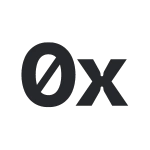
dRPC
A decentralized Web3 infrastructure platform offering a lightweight, efficient gRPC replacement and multi-chain RPC access.
Overview
dRPC is a decentralized Web3 infrastructure platform designed to provide resilient, low-latency access to blockchain data and services. It offers a lightweight, drop-in replacement for gRPC, simplifying remote procedure calls with a protocol buffer-based system that is smaller, faster, and easier to debug. dRPC supports existing protobuf definitions and generates RPC stubs, enabling developers to migrate from gRPC with minimal friction. The platform emphasizes simplicity by avoiding complex HTTP/2 dependencies and concurrent RPCs over a single transport, reducing head-of-line blocking and buffering issues.
Beyond its RPC protocol, dRPC operates a decentralized network of independent infrastructure providers and public nodes. This network distributes workload efficiently, ensuring uptime and censorship resistance for Web3 applications. It supports a wide range of blockchain APIs, including Ethereum, Bitcoin, Solana, Polygon, Avalanche, Optimism, Arbitrum, Fantom, Celo, BNB Smart Chain, and others, providing unified access to multi-chain data and transaction execution. dRPC also supports advanced features like subscriptions, debugging, tracing, gas estimation, and mining info across these chains.
dRPC’s architecture is transport agnostic and extensible, allowing middleware integration and clean interface design. Its pay-as-you-go pricing model is flexible for developers of all sizes, and the platform incentivizes infrastructure providers by allowing them to use their own nodes for free while paying only for failover requests. This fosters a diverse, decentralized ecosystem that is not controlled by any single entity. Developers can get started quickly by generating RPC stubs from protobuf files and accessing comprehensive documentation and community support via Discord and GitHub.
The Problem
Developers face complexity and inefficiency when using traditional gRPC for blockchain RPC calls, including large binary sizes, difficult debugging, and head-of-line blocking. Centralized RPC providers also create risks of censorship, downtime, and latency issues in Web3 infrastructure.
The Solution
Key Features
Protobuf Compatibility and Stub Generation
Works with existing protobuf definitions and protoc compiler to auto-generate RPC stubs for easy migration.
dRPC Alternatives
Explore web3 competitors and apps like dRPC.

Rarible
Pricing
Pay-as-you-go | |
|---|---|
| Price (Monthly) | Custom pricing |
| Price (Annual) | Custom pricing |
| Messaging | N/A |
| Support | Community support via Discord and GitHub |
| Analytics |
Start Building Now
Reliable RPC, powerful APIs, and zero hassle.
Resources
dRPC provides extensive documentation covering setup, API references for multiple blockchains, migration guides, and community support channels to help developers integrate and operate their infrastructure efficiently.

















